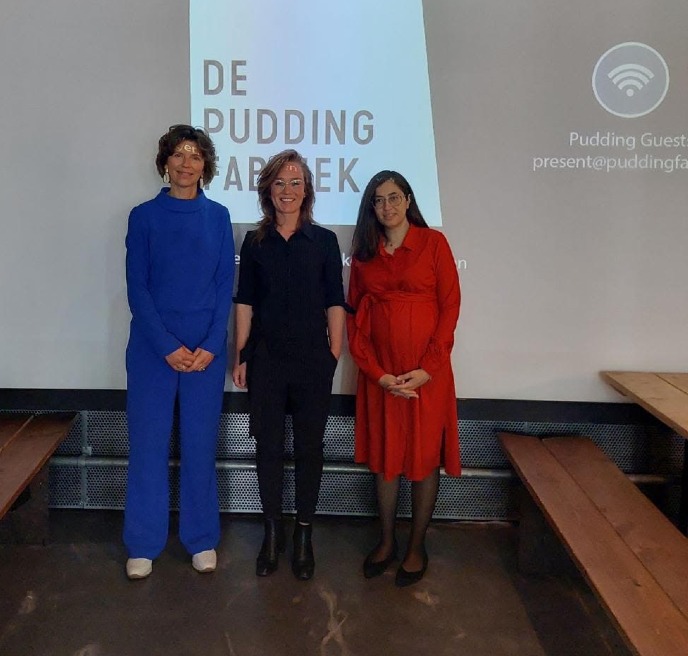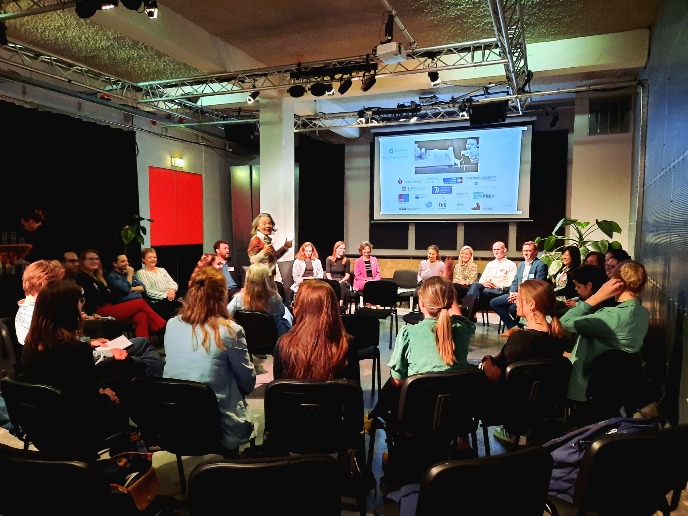Tobacco, law and human rights: taking stock
By Brigit Toebes
On 12-13 May, the Groningen Centre for Health Law and the European Scientific Network on Law and Tobacco organized a conference entitled ‘ Tobacco, Law and Human Rights ’. The event marked the finalization of our project funded by the Dutch Cancer Society (KWF) entitled ‘ the rights of children to a tobacco-free environment ’, which started in 2016.
Six years of legal and multidisciplinary research in tobacco control, what has it brought us? One of our most important overarching messages has been and is that tobacco is a matter of human rights. In the context of tobacco, human rights like the right to health and the right to life are key. They put the spotlight on the vulnerability of the individual when it comes to smoking and exposure to SHS. Governments have obligations to respect, protect and fulfill these rights; the industry has responsibilities to respect these human rights; that means, not violating the right to health. The ultimate consequence of this position is that the industry should go out of business (https://papers.ssrn.com/sol3/papers.cfm?abstract_id=3139620). Claims from the industry that they have human rights to sell and produce their products are, therefore, contrary to the very nature of human rights.
Specifically, in our project we focused on the (https://dash.harvard.edu/bitstream/handle/1/35014824/5801650.pdf) rights of children in tobacco control. Tobacco disproportionately affects children, especially those living in low socioeconomic conditions. We made a systematic analysis of how international and regional human rights regimes contribute to protecting and promoting specific aspects of child health and development in tobacco control enforcement. We identified a child-development specific rights-based approach to tobacco control.
During these years, another project came on our way. It is a unique multidisciplinary collaboration between dr Jasper Been, neonatologist at Erasmus University and Prof Martine Bouman from the Center for Media and Health, funded by the Lung Foundation Netherlands and a range of other health funds, including KWF. In this project, conducted together with colleagues dr Michelle Bruijn and dr Katerina Tsampi, we explored smoke free zones from the perspective of medicine, law, and media studies. Ultimate goal is to explore the possibilities for expanding these smoke free zones in the Netherlands; and we are in the process of finalizing and publishing our findings.
So where do we stand when it comes to tobacco control, internationally and in the Netherlands? Much has been achieved by many stakeholders, including scientists, law and policy makers, in particular Gezondheidsfondsen voor rookvrij, as well as by activists, including Wanda de Kanter and the Stichting Rookpreventie Jeugd. It takes many stakeholders with different backgrounds and expertise to come together to enhance tobacco control and to counter the industry. There is by now much more attention for the topic, and in many areas legislation has become stricter and there is much more attention for it in policy. We have a (https://www.rijksoverheid.nl/onderwerpen/gezondheid-en-preventie/nationaal-preventieakkoord) Dutch Prevention Agreement, and when it was concluded the tobacco industry did not sit at the table, as this is prohibited by the Framework Convention on Tobacco Control (FCTC) (https://fctc.who.int/who-fctc/overview), to which the Netherlands is a party. We see that international law has played a crucial role in preventing the tobacco industry from influencing the government.
But there is still much to be gained. Clearly, tobacco control and smoking prevention is a field that requires on-going maintenance and should not slip from our agendas. What should be on top of our to-do list is critically addressing the expansion of the tobacco industry to low and middle income countries, where they are often faced with not so strict regulation. Receiving countries will witness a surge in tobacco-related disease and pollution. This is a matter of human rights, resulting in obligations for domestic governments of these countries, but also for international society at large.
But let us not be complacent in the Netherlands. Much is still to be gained, for example when it comes to reducing the points of sale, especially in areas where children congregate. We should also keep an eye on the illicit marketing of tobacco on the internet and on social media. The pollution caused by cigarette butts should also have our attention.
Specifically, the Netherlands can take a few more steps when it comes to the introduction of smoke free zones. We have conducted research investigating such spaces around the world and our data show versatility of spaces, regulation, and implementation. When it comes to spaces, countries and local communities have introduced smoke free streets, public transport waiting points, smoke free cars, and balconies. It requires some creativity and perseverance on the part of the government to introduce such zones, but it is worth the effort.
Our investigation of smoke free zones in the Netherlands shows that there is considerable local variety when it comes to municipal policies. This begs the question, whether smoke free zones should ultimately be regulated centrally, so that there is clarity and legal certainty as to where one can and cannot smoke (see the forthcoming publication by Michelle Bruijn in Tijdschrift voor Gezondheidswetenschappen).
When it comes to taking a human rights approach to tobacco, what was expressed during the conference was the need to look at many rights, as well as their interaction. Making homes smoke free impacts on the rights to health and housing, for example. Child protection rights could also play a role in protecting the interests of children in tobacco control. It was also mentioned that the voices of children should resonate in tobacco policy and its implementation. We also learnt that while human rights are important, they may not always be the strategic tool in the political arena. Perhaps as long as they resonate in the background, they do not have to be mentioned explicitly in each context.
For the first time, the role of the Council of Europe was placed on the agenda of a conference addressing tobacco control. While currently the CoE engages only to a limited extent with tobacco, there is much potential. The European Committee on Social Rights frequently addresses tobacco control (or the lack of it) in the context of its state reporting procedure. Smoking has not yet been addressed so frequently before the European Court of Human Rights, but there is much potential for addressing tobacco related harm under the umbrella of various rights of the Convention.
At the domestic level, we need action from all sides. Accountability is a broad process, which does not solely rely on successful court cases. Yet court cases can have an important effect, as is illustrated by a number of Dutch court decisions based on the FCTC.
Finally, we discussed the crossovers between tobacco and other behavioral risk factors, in particular alcohol and drugs. There is much to be learned and gained in studying their interaction, overlaps and differences. Countries seem to be balancing on a chord between prohibition and legalization; and the desired regulatory approach differs per risk factor and per country.
We will continue to research these matters within the Groningen Centre for Health Law. We thank everyone for their involvement thus far.



